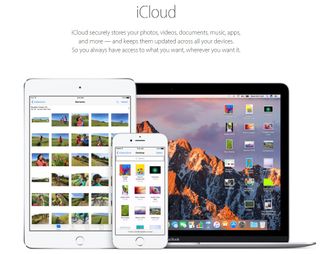China Telecom Will Manage Apple's iCloud in China

The iCloud data of over 130 million iPhone users is going to be stored by a division of the state-owned China Telecom company. Critics worry that this means the Chinese government will gain full control over all of the iCloud users’ data.
iCloud and China
Some countries, including China, have used the mass surveillance revelations revealed by Edward Snowden in 2013 to pass new laws that demanded foreign companies store the data of their citizens locally. This could be considered phase one of these governments' plan to have more direct control over their citizens' data.
In phase two, the Chinese government also unofficially pressured foreign companies to do “joint ventures” with local businesses. In Apple’s case, the company was also forced to store the encryption keys in China, this February. At the time, Apple said:
"China recently enacted laws requiring that cloud services offered to their citizens be operated by Chinese companies and that Chinese customers' data be stored in the country. While we advocated against iCloud being subject to these laws, we were ultimately unsuccessful.
Our choice was to offer iCloud under the new laws or discontinue offering the service. We elected to continue offering iCloud as we felt that discontinuing the service would result in a bad user experience and less data security and privacy for our Chinese customers."
Chinese iCloud Now Owned by Government
It seems that now, in phase 3, the Chinese government itself has taken direct control of Apple's iCloud data center, by taking the reins from Guizhou Cloud Big Data, the private Chinese cloud services company that stored Apple’s encryption keys from February to now.
The Tianyi division of the state-owned China Telecom will be storing pictures, iMessage texts, notes, and calendar data from iCloud. Even though iMessage texts are technically end-to-end encrypted, in reality they are automatically stored on iCloud along with everything else. Their encryption key is, too, which means whoever is in control of the iCloud servers can read them.
Stay on the Cutting Edge
Join the experts who read Tom's Hardware for the inside track on enthusiast PC tech news — and have for over 25 years. We'll send breaking news and in-depth reviews of CPUs, GPUs, AI, maker hardware and more straight to your inbox.
Apple is yet to allow users to individually disable the storing of iMessages. Users have to completely disable iCloud syncing, which is enabled by default, in order to ensure that their messages and other data isn’t stored on the iCloud servers.
Two years ago, Apple was also rumored to implement some kind of end-to-end encryption for the whole of iCloud, which wouldn’t have allowed the company itself or anyone that gains control of the servers to access users’ data. However, that feature has yet to appear.
-
why_wolf I don't think they had a choice about turning iCould on or off in China. It was probably more likely the choice was do this or not be able to sell iPhones in China at all.Reply -
stdragon Don't worry. I'm sure there will be a followup story on how China will use social media and cloud content to dynamically rank your "Social Credit" score in order to be eligible for certain "benefits" like education opportunities. Isn't that right comrade?Reply -
bit_user Reply
Many do know and do care. The trouble is that it was easy for them to circumvent the Great Firewall, and many other forms of surveillance, and that breeds complacency. Lately, the government has been tightening the screws... or slowly turning up the heat.. you choose the analogy.21153426 said:People in China don't know and don't care
Even then, what do you do?
I used to hope North Korea would gradually become more like China, but now the converse is happening.
Most Popular




